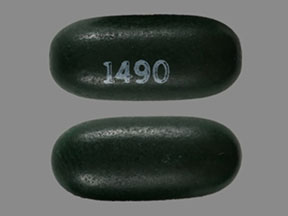
Estratest F.S. Coupons & Savings Card – Discount Prices from $38.85
Brand for: Est estrogens-methyltest
My prescription
Edit
1.25-2.5MG, Est Estrogens-methyltest (30 Tablets)
Select pharmacy

CVS
$54.17
COUPON PRICE
Walgreens
$38.85
COUPON PRICE
Walmart
$94.79
COUPON PRICE
Albertsons
$100.03
COUPON PRICEEstratest F.S. savings card
Show this card to your pharmacist
Walgreens
$38.85
BIN
ID
PCN
GRP
015995
LHKPX282120
GDC
DR33
Powered by
Price history for Estratest F.S. (brand) & Est Estrogens-methyltest (generic)
30 Tablets, 1.25-2.5MG
Average retail price for Estratest F.S.
Average retail price for Est Estrogens-methyltest
Average SaveHealth price for Est Estrogens-methyltest
Our price history data is based on aggregated prescription data collected from participating pharmacies in America. Our prescription data updates daily to reflect the latest price changes. If you notice a missing data point, it means there wasn't sufficient data available to generate a monetary value for that date.
Over the last 12 months, the average discount price of Estratest F.S. is $81.41 using the SaveHealth savings card. That's an average savings of 82.54% on Estratest F.S. with our discount card.
*Retail prices are based on pharmacy claims data, and may not be accurate when we don't have enough claims.
Estratest F.S. (Est Estrogens-methyltest) dosage forms
Dosage Quantity Price from Per unit 1.25-2.5MG 30 Tablets $54.17 $1.81 1.25-2.5MG 100 Tablets $145.86 $1.46
| Dosage | Quantity | Price from | Per unit |
|---|---|---|---|
| 1.25-2.5MG | 30 Tablets | $54.17 | $1.81 |
| 1.25-2.5MG | 100 Tablets | $145.86 | $1.46 |
Has Estratest been discontinued?
Yes, Estratest has been discontinued. The manufacturer stopped producing it, and it is no longer available on the market. Patients who were using Estratest should consult their healthcare provider for alternative treatment options.
What are the side effects of Estratest?
Estratest, a combination of esterified estrogens and methyltestosterone, may cause several side effects. Common side effects include nausea, vomiting, headache, and changes in weight or appetite. It may also cause mood changes, acne, and changes in libido. More serious side effects can include signs of liver problems, such as yellowing of the skin or eyes, dark urine, and severe stomach pain. Additionally, it may increase the risk of blood clots, stroke, or heart attack. It is important for individuals to discuss any side effects with their healthcare provider.
What is Estratest used for?
Estratest is used to treat symptoms of menopause such as hot flashes and vaginal dryness. It combines estrogen and testosterone to help alleviate these symptoms in women who do not find relief from estrogen alone.
Why was Estratest taken off the market?
Estratest was discontinued by its manufacturer due to commercial reasons, not because of safety or efficacy concerns. The decision was related to business considerations, such as declining sales, rather than any regulatory action.
